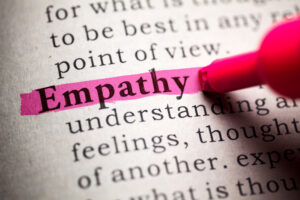A while back, one of my favorite blogging sites, Grown & Flown, published a heartfelt letter from a mom whose son with ADHD just graduated college. The letter touched me in so many different ways. I shared it on my Facebook page with the heading, “All I can say is ‘wow’. I hope every person who has ever misunderstood a person with ADHD gets to read this”.
Here is the crux of the matter: despite the fact that ADHD has been a diagnosable medical condition for over 50 years, the stigma around it still remains. In fact, many people believe that an ADHD diagnosis is a “fake” disorder and that parents and children alike use it as an excuse for sheer laziness.
The mom who wrote the letter describes her son’s experience throughout his school years. He was called all kinds of negative labels, such as lazy, unprepared, and disappointing, just to name a few. From my experience working with my clients, I can name so many more negative labels that have been used to describe them: lost, disruptive, uninterested, distracting, the list goes on and on. Just yesterday, a mom was telling me a story of a music teacher who told one of her students, “I know you have problems, but don’t bring them into my classroom”.
It truly is a shame. Because if the naysayers tried to learn more about ADHD, they might find a whole lot of positive ways to inspire these individuals. Students with ADHD are often highly intelligent (ADHD is a performance deficit, not an intelligence deficit). They are creative and have a unique way of thinking outside of the box. They forge ahead in the face of diversity.
Imagine yourself sitting in a room, trying to pay attention to a speaker who is perhaps 20 or 30 feet away from you, and everyone in the room is talking, music is playing, the lights are flashing on and off. That is pretty much what is going on in the ADHD brain. All kinds of stimuli are coming in, and the brain is unable to discern what is important information to pay attention to and what is extraneous. So, the brain tries to pay attention to all of it at once. Imagine this not just happening for a few minutes but for a whole day, and then every day after. This is what life is like for someone with ADHD.
Also, imagine going through life with your “mentors” constantly telling you what you are doing wrong. They are even writing these things down (think weekly progress reports) and sharing your behavior with others. You, on the other hand, must talk about all of these “wrong” things with a therapist, a tutor, a doctor, a coach, a teacher, and/or a parent. Oh, yes, and you are only 10 years old, 15 years old, or 20 years old.
If you know a child with ADHD, I strongly encourage you to take a deeper look at how you interact with them. Do your very best to take notice of all of the wonderful attributes that person has. And, do not be afraid to compliment them. Believe me, the child needs some positive feedback. While you are at it, give the parents a major pat on the back, or ask them if you can help in any way. It takes a village!



